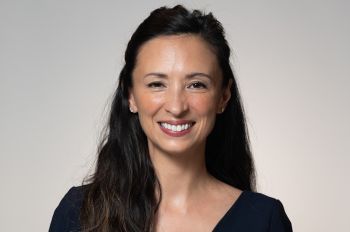A New Standard: Sungjoon Cho Wins Best Book Award

“In Western countries, somehow intellectuals tend to believe their legal system is standard,” says Chicago-Kent College of Law Professor Sungjoon Cho. “That, we try to problematize.”
Cho’s latest book—co-written with Jürgen Kurtz, professor of international economic law at the University of Melbourne, Australia—titled Investing the ASEAN Way: Theories and Practices of Economic Integration in South East Asia (Cambridge University Press 2022) was awarded the 2024 Best Book Award from the International Law Section of the International Studies Association. The award annually recognizes a book that “excels in originality, significance, and rigor in the broadly defined field of international law.”
“I was really happy. It was out of nowhere. I truly honor it because our peers, they somehow recognized our effort on this,” says Cho.
The book explores law and governance in the member states of the Association of Southeast Asian Nations (ASEAN) through the lens of foreign investment.
“In the United States, a lot of books about these laws and institutions are mostly focused on Western-led international organizations, such as the World Bank, International Monetary Fund, or even the United Nations. But this is pretty regional, focused on Southeast Asia,” says Cho. “The culture is pretty different there, so the way the law operates is different there.”
Cho is fascinated by comparative law, or the study of comparisons between different legal systems.
“There’s a tendency in Western academia, not every scholar, but the mainstream view is that Western law is standard, but that’s only a half truth,” he says.
“We learned a lot of stuff from the United States,” adds Cho, who grew up in South Korea. “We adopted, imported their laws and everything, but we’re trying to show that the ASEAN countries didn’t fully import everything that Western global investment law prescribes. They were more cautious and selective because they knew not everything from the Western world worked in their own system, even the law.”
The book not only examines different types of governance, but also employs research from different disciplines.
“The book is more experimental than a typical legal work,” says Cho. “The law cannot see itself from its own perspective, right? We need some kind of extra-legal optic, or some conceptual distance to see how it really works.”
By examining the law through a sociological lens, Investing the ASEAN Way provides readers with an in-depth understanding of how legal and economic systems in Southeast Asian countries really operate, and especially how these systems differ from Western traditions.
Cho argues that different cultural values translate to the differences in legal traditions. For example, on a core level, the law itself is used incredibly differently in Asian countries compared to Western ones.
“In the United States, the law must exist before everything. It is a fundamental, instrumental tool that helps markets run smoothly,” he says. “But in other parts of the world, especially in Southeast Asia, that’s not necessarily true.”
Cho explains that in Western countries, policy follows law, whereas in many Southeast Asian countries, law follows policy.
“Law means you’re binding something to legal enforcement, and in Southeast Asia, the way they use law is much more of an afterthought. There’s more consensus among social actors, you feel more comfortable about an institution or policy, then later on you codify it as law,” he says.
Often, Western academics and businesses will come into the ASEAN market attempting to pass laws first, only to be perceived as rude or presumptuous.
“That’s why a lot of academics and businesses from the West get frustrated,” says Cho. “We’re focused on policies. Don’t try to double down with the rule of law. Maybe more law isn’t necessarily better.”
To expand on that principle, Cho uses the example of special interest lobbying in Washington, D.C., an action that would be perceived very differently in many Southeast Asian countries.
“Special interest lobbying would border on corruption in those countries because you’re buying those votes for your private interest,” says Cho. “Of course, here, there are First Amendment protections, but you’re sacrificing public interest for the sake of your private interest, and in many corners of this Asia, that’s virtually corruption.”
Cho hopes that Western readers better understand ASEAN markets and learn to look at their own system a little differently through reading Investing the ASEAN Way.
“At the end of the day, they might be able to raise some more questions. Why does our system work differently from theirs? Maybe our system might not always be the standard,” he says. “Maybe in some situations, their system might work better.”



